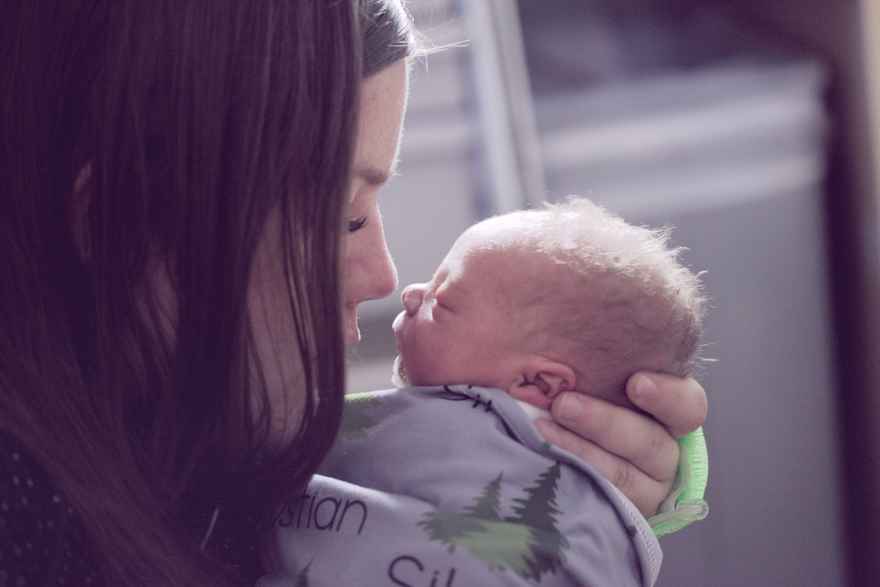The myths and truths of maternal instinct

Congratulations! You have grown and delivered a baby. A baby that cries and feeds a lot and sometimes sleeps and sometimes doesn't. You thought you had a pattern worked out but today it's out the window, perhaps it's gas but maybe it isn't and do you think we should bath him? You've only just met this person but you're his mum, so you should be able to understand his cues right?
When my baby was small I was bemoaned being unable to soothe her, and questioned why my "maternal instinct" instinct hadn't shown up on time. I was reassured by a mum of three who shared some great parenting wisdom - "don't worry, we're all just making it up as we go along". I calmed down and when eventually baby did too, her words got me thinking, then researching, then advocating.
There is truth to the notion that (usually) "mother knows best" when it comes to her kids and their needs. Amazingly, mums can identify the smell of their own newborn from other newborns, and babies prefer the smell of clothes worn by their own mothers compared to those worn by other mums (Vaglio, 2009, full citation below). Research suggests that if mum thinks something is wrong with their child's communication development, it most likely is (Dr Sarah Verdon Pedemont covers this and more in her wonderful "Talking Children" podcast series for parents). In those early days though, when your baby is still a stranger, it is normal to feel like you are fumbling around in the dark when it comes to reading their behaviour.
Mums expend considerable time and energy studying body language and analysing the sounds of their newborns, piecing together information and clues to determine what responses their babies do and don't like. It is at this time that "baby brain" is both real and essential. The old files in her mental filing cabinet have become useless overnight and her resources are redirected to learning all she can to keep her baby alive in this vulnerable period. While initially her thinking seems fuzzy and patterns seem impossible to find, eventually she will have witnessed a behaviour enough times and tried enough responses to know what is more likely to work. It is at this point that her interactions with the baby seem to come easily to those around her. It may seem like she is responding to the needs of her baby automatically, demonstrating those incredible "maternal instincts" but in fact she has worked incredibly hard to achieve this feat!
It turns out that the biggest predictor of "instinctual" interaction with a child is not the relationship to them but the time spent together. This makes total sense, but the myth of "maternal instinct" might put dads off from the get-go. If they feel they have no idea what baby wants (but assumes the mum does) they may feel insecure about their abilities to parent and withdraw. As mum spends more time with baby she comes to learn the cues, but dad's absence delays the development of those automatic "instinctual" responses. Clearly, the long-term consequences of this on relationships aren't pretty (Elly Taylor's wonderful book "Becoming Us" goes into greater detail about preventing and remedying this slow drift).
So please, mums and dads take heart. It's OK that you don't know what your kid wants yet, they are still strangers to you. Those "instincts" will come in time.
Oh and if you finally feel like you're getting the hang of it and something new crops up that catches you off guard, take heart. That mum of three I mentioned earlier? Her youngest is 29 years old.
Image credit with thanks to @sharonmccutcheon
Vaglio S. Chemical communication and mother-infant recognition. Commun Integr Biol. 2009;2(3):279–281. doi:10.4161/cib.2.3.8227
Categories
- News (33)
- Breastfeeding (22)
- Post-partum (69)
- Sleep (14)
- Food (7)
- Partners (19)
- Rehab (2)
- Parenting (51)
- Birth (21)
- Pandemic (14)
- Research Update (5)
- Decolonisation (2)
- Covid (14)
- Education (8)
- Motherhood (43)
- vaccines (2)
- Children (9)
- self employed (2)
- government policy (3)
- feminism (10)
- abortion (3)
- lockdown (3)
- infancy (1)
- gentle parenting (10)
- infertility (1)
- parenthood (9)
- isolation (2)
- village (5)
- Pregnancy (7)
- Podcast (2)
- Mental Health (5)
- Career (2)
- Mental Load (1)
- Community (1)
- Technology (1)
- Doula (2)
0 comments
Leave a comment
Please log in or register to post a comment